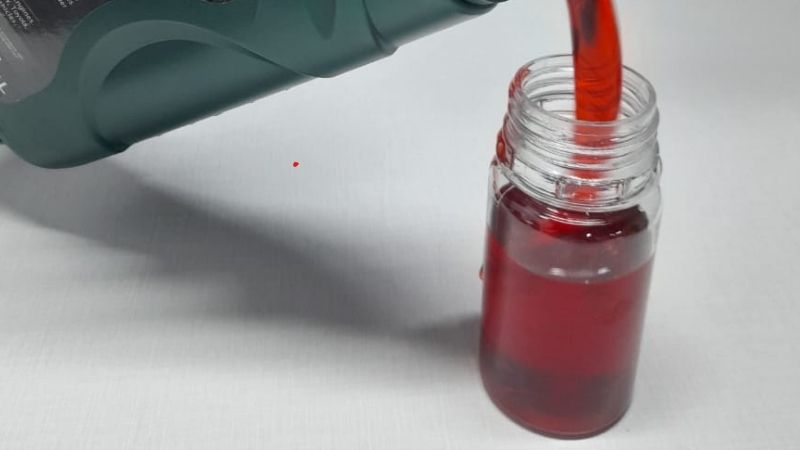A lubricant’s viscosity is determined by its base oil and additives, and a viscosity modifier is one of those additives. Also, it is a lubricant additive used to reduce the variation of the lubricant’s viscosity as a temperature function.
Industrial and automotive oils require thickening agents to acquire the proper viscosity. Actually, viscosity modifiers are an element of many oils.
The oil viscosity stabilizing secret is hidden in the structure of the viscosity modifier. And it can increase the viscosity index of engine oil. Generally, this extraordinary property is acquired at the molecular level. The reason is that during temperature changes these molecules’ viscosity modifiers increase their protrusions.

Viscosity Modifiers
Viscosity modifiers are here used interchangeably and indicate polymeric additives utilized in lubricants formulated to affect the liquid viscosity-temperature relationship.
In other words, viscosity modifiers or viscosity index improvers are polymeric molecules and are sensitive to temperature.
Explanation Of Viscosity Modifiers
As we know, viscosity is one of the most essential indicators in determining your compressor lubricant health. Nowadays many lubricant blenders are applying low-grade base stocks. That’s why to improve the lubricant’s viscosity index, they depend on viscosity modifiers. This viscosity improves polymers consisting of large viscosity-regulating molecules.
During use in high-speed high shear conditions, these molecules are cut or sheared, resulting in compromised lubricant performance. Utilizing a top-quality base stock, like a PAG fluid or PAO will ensure a stable viscosity index throughout the life of your lubricant.
Viscosity increases at a slower rate than most oils at low temperatures. Viscosity decreases at a slower rate than most oils at higher temperatures. When combined with high-viscosity synthetic esters, KEMAT polybutenes reduce deposit formation, provide cleaner burning, and can reduce costs.
When the temperature increases, the molecules begin to extend and they stick together to stabilize the liquid viscosity. When the temperature drops, the molecules contract, which enables other molecules to move more freely.
The Importance of Viscosity Modifiers
Part of EPA fuel economy testing is a driving test and cold start. And automakers like Honda have been able to boost their overall new vehicle mileage ratings by mixing multi-grade, super-thin oils. Thinner oil results in less drag inside your engine, freeing up energy in cold starting conditions. As well as it can improve overall driving and ultimately fuel mileage.
In modern OEM engine oils, these modifiers play a significant role by helping meet fuel mileage standards. A viscosity-changing molecule is too large and parts with intimate tolerances, like gears and some kinds of bearings, shear them easily, diluting the oil.
Base oil molecules don’t shear and there are applications where makers prefer this over ultimate efficiency. It prefers to use mono-grade engine oils that don’t comprise viscosity modifiers.
Viscosity modifiers begin to play a larger role in fuel efficiency numbers. After that, they give attention to these fuel efficiency numbers and start to increase development. Note that viscosity decreases as temperature increases. The addition of modifiers will only slow down the rate of viscosity reduction.
Purpose of Viscosity Modifiers
Viscosity is essential because it affects engine lubricant properties like oil film thickness and low-temperature pumpability. The ability to adjust lubricant viscosity is essential in meeting government-mandated targets of fuel economy.
Viscosity modifiers can include products such as texturizers, thickeners, stiffening agents, and gelation agents. In Particular, you can use these modifiers to convert fluids into pastes, gels, or powders to assist formulators in making ideal products for future users.
Where are Viscosity Modifiers Used?
Used viscosity modifiers in engine oil, automatic transmission fluids, gear oils, and so on. Most of these uses include an automobile, and that’s because they are subject to extreme temperature changes.
For example, in the crankcase, low temperatures require an oil with a low viscosity. Additionally, this oil needs to be sufficiently viscous to protect your engine during extreme temperatures. Using modifiers in multigrade oils is economical.
How Do Viscosity Modifiers Work?
The molecular chain contracts and doesn’t affect liquid viscosity at low temperatures. In contrast, the chain relaxes and the viscosity increases at high temperatures. There are two paths to explain the properties of these polymer chains. Normally, the first one is to compare polymers to humans.
When a man is cold, their natural response is to hold their arms close to their body to keep the warmth. Now imagine a crowd of cold people, weapons drawn, walking past each other in a crowded hallway. Of course, there is some traffic, but people can still walk freely.
Now imagine the opposite. When a person is hot, he spreads. Picture a person holding their arms straight out at their sides. Navigating a crowded hallway with hot people, arms outstretched will be much more difficult. Consider in this example, the flow of people related to the crowd viscosity.
Viscosity Modifiers In Concrete
The main job of modifying viscosity in concrete mixes is to change the rheological properties of concrete. Especially the plastic viscosity of fresh concrete. Adding VMA to the concrete blend expands the concrete plastic viscosity and slightly increases the yield point.
The yield point is another rheological concrete property that should be optimized with plastic viscosity to obtain suitable concrete rheology.
But VMA doesn’t affect the concrete yield point. So, apart from VMA, plasticizers and superplasticizers are assembled to change the yield point of the concrete blend.
Paratone 24ex Viscosity Modifiers
Paratone 24x viscosity modifiers are suitable to use in heavy-duty engine oils and passenger car motor oils. Usually, they have a long history where they have proven their amazing performance. The portfolio continues to evolve to meet market performance demands demonstrated by the introduction of their increased Paratone polymers.
Paratone modifiers mix excellent viscometric performance with high oxidative stability. Moreover, these products offer the performance characteristics and flexibility required to produce oils for today’s high-quality standards and performance requirements.
Their products are suggested for many Society of Automotive Engineers (SAE) J300 viscosity grades. Similarly, they come to meet a broad range of industrial OEM performance specifications at economical rates. Correspondingly, Paratone products provide developed formulation flexibility, therefore reducing requirements of expensive specialty base stokes in most applications.

FAQ (Frequently Asked Questions):
Q. What are Viscosity Modifiers?
Viscosity modifiers come to decrease changes in lubricant viscosity with temperature changes. Since it is one of the main components of engine oil, the selection of a viscosity modifier is an important consideration in the formulation of quality engine lubricants.
Q. What are viscosity modifier examples?
Viscosity modifiers examples: An oil is made with a viscosity 5 (CST) base oil and a viscosity modifier is applied to expand its viscosity to 15 (CST). The viscosity contribution of the viscosity modifier is therefore 10 CST. At the time of the shear test, the viscosity of oil falls to 12 CST.
Q. Which compound is used as a viscosity modifier?
The ethylene/propylene copolymers or proprietary polymers are used as a viscosity modifier.
Polymers utilized as viscosity modifiers in oil have three critical attributes: increased thickening efficiency, improved viscosity index, and proper shear stability.
Q. Which alcohol is a viscosity modifier?
Super Refined™ Benzyl Alcohol and Cetyl alcohol is a viscosity modifier. It’s even adjusted to non-aqueous formulations like balms and butter to improve texture and spreadability.
Final Word:
On the other hand, a viscosity modifier is an oil-soluble polymer, containing large liquid molecules. Accordingly, it expands and contracts with temperature to increase viscosity when heated and decrease viscosity when cooled. Nevertheless, of their large size, they will be damaged by the tools they are trying to save.
However, without some disadvantages, viscosity modifiers come with many advantages. So, this is the guide where you can get important information about the viscosity modifiers that you are searching for. Thanks for spending your valuable time reading my experience. And we hope we can bring something new for you.
